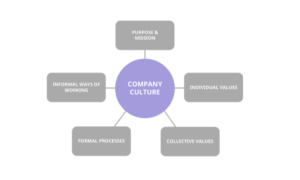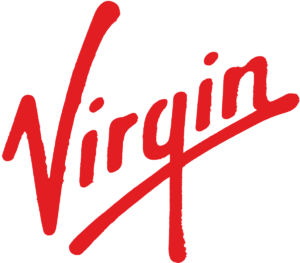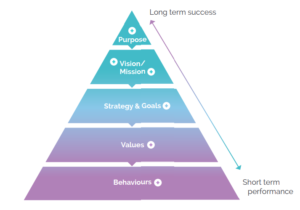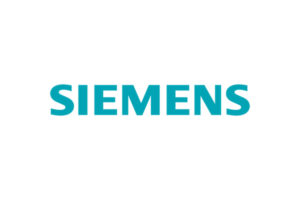In 2020, company culture was well and truly tested.
The concept of ‘workplace’ evolved quicker in 12 months than the decades prior to the pandemic.
Team cohesion, passion and purpose were put to the test and sadly many didn’t survive the government imposed challenges, and at the same time, many thrived.
Consider this, the core of your company’s success lies in its culture.
With a focus on culture, your team is more connected, is focused on a shared vision and increases the likelihood of performance. Here is the data:
- 76% of employees believe that a well-defined company vision and strategy helps cultivate a positive work culture.
- 38% of U.S. employees want a job that aligns with their interests and passions.
- 88% of employees believe strong company culture is key to business success.
If you’ve been around for a while you’ll know what our purpose is at Lifestyle Perfected.
“Emotional Intelligence For All”
This purpose is the epicentre of everything we do at Lifestyle Perfected. It’s the gravitational pull that keeps us on the path of our shared vision.
It’s safe to say that wherever you’re heading, strong company culture is your compass.
Can you remember running your company or having a job you weren’t aligned with?
The hours were long, the work didn’t light you up… maybe you or your boss wasn’t effective in being inspiring?
What beliefs are held around jobs that are misaligned?
- This is just a job it means nothing to me
- I don’t like it here, so I’ll leave as soon as a better opportunity comes up
- This is just a paycheck
Sound familiar?
These beliefs are what formulate a company’s culture.
If all your team members hold a belief stemming from feelings of lack of clarity, frustration and negativity, then your company culture will be a reflection of that.
The first step to shifting your company culture is defining your company purpose and hiring team members aligned with it.
If you’d like help with rolling out an effective hiring process within your company, you can book a session with me here.
Alignment between your company purpose, team members and customers means everyone is flowing in the same direction and revenue and profits will be flowing with them.
Here Are Some Key Opportunities For Company Culture
Deliver your ambition & goals
As markets and industries evolve, along with customer expectations and business models, the only way to start on the path to your vision and to achieve your ambitions is to have a healthy aligned team.
Build capabilities for a new future
Incorporating systems and processes with an aligned team will have a significant impact on company performance.
Rewiring your organization will unlock potential, productivity and ownership and ensure even greater alignment for future success.
Lead remote team members
While the shift to remote working was a shock for many, it has opened the door to a new way of working and getting things done.
Defining and embodying your company culture into each team member is the new must-have capability for you when it comes to leadership.
It’s important you create a simpler, more transparent organization where each team member is clear on the role they play.
Attract and retain talent
The talent landscape has shifted. Despite higher rates of unemployment, the top talent has never had more choice.
46% of job seekers cite company culture as very important when choosing who to work for.
This data shows company culture is what’s setting companies apart.
Re-energize people around your brand and purpose
People want to connect emotionally with companies and brands in our ever-changing world. Revising your company purpose and ensuring it’s relevant can really help strengthen your reputation and create a platform for growth.

The above image highlights the contributing factors that promote positive company culture.
Let’s Look At The Data Around Company Purpose & Culture
- 35% of American workers say they would pass on the perfect job if they felt the company culture wasn’t a good fit.
- 91% of managers in the U.S. say a candidate’s alignment with the company culture is equal to or more important than skills or experience.
- One-third of job seekers report being willing to take a 10% pay cut for a job they’re passionate about.
What this data tells us is when you have a strong company culture it bears more weight in the area of hiring and retention than salary or experience.
It also reaffirms my earlier statement that company culture is how you get the edge when hiring. 35% of Americans would pass on the perfect job if it’s a bad fit. You could acquire top talent simply because you have a better culture fit.
Virgin Group Case Study

The Virgin group is one of the most successful organizations in the world today and has established itself in a diverse range of industries including:
- Retail
- Music
- Travel
- Communications
- Financial services
- And more…
It has ruled the British market and expanded into other regions like the US, Asia & Africa.
They have over 300 companies, 50,000 employees and are located in more than 3 countries and has a global revenue that exceeded $18 billion in 2009.
Richard Branson, the founder of the Virgin Group, has his beliefs and philosophies deeply rooted in the company culture which has helped them flourish in today’s competitive markets.
How has the Virgin Group managed to grow into such a large organization?
Well, let’s first take a look at the organizational structure.
The Virgin Group started out as a humble school magazine called Student, which Richard Branson advertised in to launch Virgin.
Richard opened his first retail store in Oxford Street London in 1971 and soon expanded into the music industry launching Virgin records.
Within 12 years, the Virgin group was generating £50 million in annual revenue.
The Virgin Group now has an organizational structure called Keiretsu which is essentially a group of companies that have shares in one another and are invested and connected to one another’s success.
The companies are part of a family rather than a hierarchy. They are empowered to run their own affairs, yet the companies help one another, and solutions to problems often come from within the Group somewhere.
In a sense, Virgin is a commonwealth, with shared ideas, values, interests and goals.
The reason for this type of structure is a company this large needs to be flexible with an ability to evolve and adapt to market shifts.
Within this company structure, there are multiple levels of departmentalization referred to as hybrid structure.
For example, Virgin media is split into mobile, TV, wifi and so on and these separate areas are then departmentalized based on location so it can adapt to the cultural, technological and other influences in the areas it expands to.
Branson himself has provided all his employees with the authority to make unsupervised decisions based on their intuition rather than following a chain of command.
This leads to the employees having more confidence in themselves and in the management.
Since interaction among all the levels of the hierarchy is promoted, it increases effective communication.
The decentralized structure of the Virgin Group gives more power to the hands of its employees when it comes to decision making. Decentralization is the delegation of authority to all levels of the hierarchy.
How Does Branson Influence Company Culture?
The ability of the Virgin Group to operate effectively with almost a non-formal structure is because of its unique organizational culture which reflects Branson’s casual nature and disrespect for hierarchy and any formal authority.
He believes his team members are the backbone of the company and believes it is important they have an involvement in the decision making.
This influences all of the companies in the Virgin Group and its organizational culture. This, in turn, enables the Virgin Group to provide an environment in which talented, ambitious people are motivated to do their best and strive for a higher level of performance.
Company culture ecosystem

The infographic above demonstrates the impact your company’s core purpose has on overall company culture. Without it, you lack the foundation needed to set goals and consistently reach them.
Examples of company purposes
Lifestyle Perfected isn’t the only company with a purpose they align with.
Here are some examples of other companies you may have come across.
Kiva – A crowdfunding platform’s purpose is:
Connect people through lending to alleviate poverty.
The organization has facilitated $1.41 billion in funding to entrepreneurship projects around the world.
Patagonia – The Ventura-based company purpose is to:
Build the best product, cause no unnecessary harm, and use business to inspire and implement solutions to the environmental crisis.
They are constantly seeking new ways to minimize impacts on the environment—tailoring everything they make to sports that don’t require a motor.
Tesla – Elon Musk’s groundbreaking EV company purpose:
Accelerate the transition to sustainable transportation
I’m sure you’ll agree that each of those companies is living their purpose.
Purpose In Action

In 2013 Netflix CEO Reed Hastings released an 11-page memo outlining his commitment to move from just distributing content to becoming the leading producer of original content that could win Emmy’s & Oscars.
The memo said, “We don’t and can’t compete on breadth with Comcast, Sky, Amazon, Apple, Microsoft, Sony, or Google. For us to be hugely successful we have to be a focused passion brand. Starbucks, not 7-Eleven. Southwest, not United. HBO, not Dish.”
Since unveiling that new purpose, Netflix revenue has roughly tripled, its profits have multiplied 32-fold, and its stock CAGR has increased 57% annually, versus 11% for the S&P 500.

Siemens moved beyond the purpose of maximizing shareholder value to a mission of “serving society.”
This transformation began in 2014 with a plan called Vision 2020 that called for harnessing technologies such as AI and the Internet of Things.
However, changing the mission also called for changing the culture.
“The biggest obstacle to any transformation is literally just the way we’ve always done things,” says Siemens USA CEO Barbara Humpton.
Infusing a higher purpose into the company called for pushing decision making out from the centre to every business unit so that managers and rank-and-file employees feel they have a stake in future success.
“Ownership culture is central to everything,” Humpton says.
This shift in the culture at Siemens has propelled plans to divest its core oil and gas business and redeploy the capital to its Digital Industries unit and Smart Infrastructure business focused on energy efficiency, renewable power storage, distributed power, and electric vehicle mobility.
Let’s Take A Look At The Feelings & Beliefs Associated With Company Purpose
Before we can shift our undesired feelings and limiting beliefs it’s important we define the feelings and beliefs we no longer want to embody.
UNDESIRED FEELINGS
- Confused
- Frustrated
- Anxiety
- Stressed
- Disconnected
LIMITING BELIEFS
- I’m confused why my team members keep quitting
- I’m frustrated with our lack of company growth
- My employees leaving gives me anxiety
- Team member churn is stressing me out
- I don’t feel connected to my team
Now, we’re clear on these we can look to adopt feelings that we want to have and beliefs that empower us to move forward.
DESIRED FEELINGS
- Aligned
- Inspired
- Supported
- Free-flowing
- Appreciated
EMPOWERING BELIEFS
- I’m aligned with my team members
- Our clear company purpose inspires me
- My team supports me and I support them
- I love the work I do and it comes naturally to me
- My team value the company culture I’ve created
Action Steps
Once we have highlighted the feelings and beliefs you want to embody, the next step is introducing some action steps to help accelerate the transition to an elevated company purpose.
Below I have laid out 3 action steps you can start working towards today that will align your team members with your Massive Transformative Purpose.
ACTION STEP 1] Bring your company purpose front and centre.
As aforementioned, your purpose is the guiding light that keeps you and your team focused on your vision.
Therefore, it should play a role in all areas of your company.
The first step in that process is introducing it into all your meeting agendas.
After that, it should be a part of all communications with potential clients, current clients and vendors.
ACTION STEP 2] Define your core values.
You need company values to create a culture that revolves around its purpose. If you don’t have defined values each team member will do their own thing.
Clear values provide clarity on how each member and area of your company should be behaving when it comes to anything related to the company.
Creating core values starts with your personal values and connecting them with the companies core purpose.
Here is a detailed guide on defining company values.
ACTION STEP 3] See People As Your people.
Your team members are unique, dynamic and complex individuals. Treat them as such and not a cog in the company machine.
An aligned purpose starts with defining it but for your company to truly embody it, live and breath it… it comes to your leadership.
- Hiring the right person for the right role at the right time.
- Give your team the space to tap into their zone of genius.
- Coaching as a culture. Build relationships, focus on growth and be a good listener.
When your company is purpose-driven and you hire aligned team members your organization is able to find the joy in striving forward and making a true impact.
Action Step 4] Integrate Culture and Values Into The Everyday
Here are 6 tactics you can follow to integrate your values into your company culture into the everyday running of your company.
One of our CEO clients Julie Serot Founder of the Dharma Circle had this to say about her time working with Lifestyle Perfected:
“Through my time working with Nadav & the Lifestyle Perfected team, I have elevated my company culture through a clear purpose and using the Lifestyle Perfected hiring process to attract top talent.”
If you’d like a complimentary consultation on your company culture, values and purpose or another area of business to elevate the alignment within your company, reply to this email or alternatively, you can see our programs for CEOs and for teams here.
We’re also excited to invite you to apply to CEO Circle. A group for CEOs to elevate emotional intelligence, increase impact and legacy wealth. If you are CEO and/or a founder with $1 million or more in revenue or assets apply here.
Sending you love,
Nadav
& the Lifestyle Perfected team

